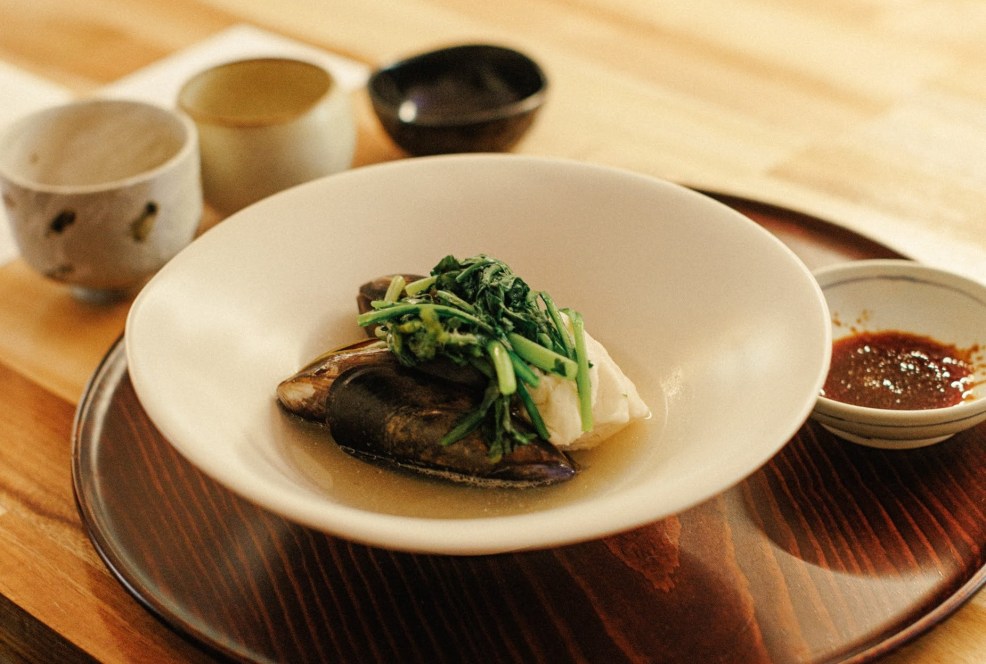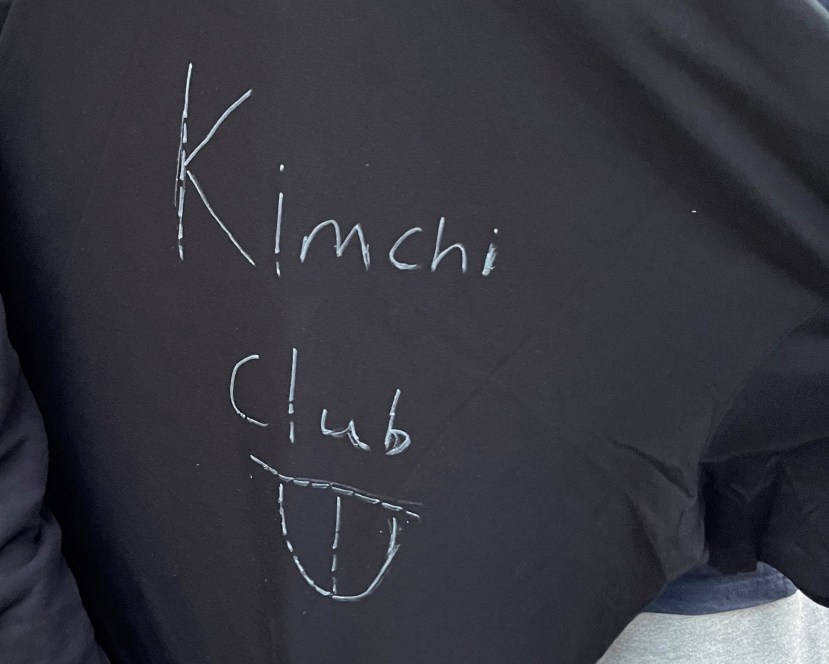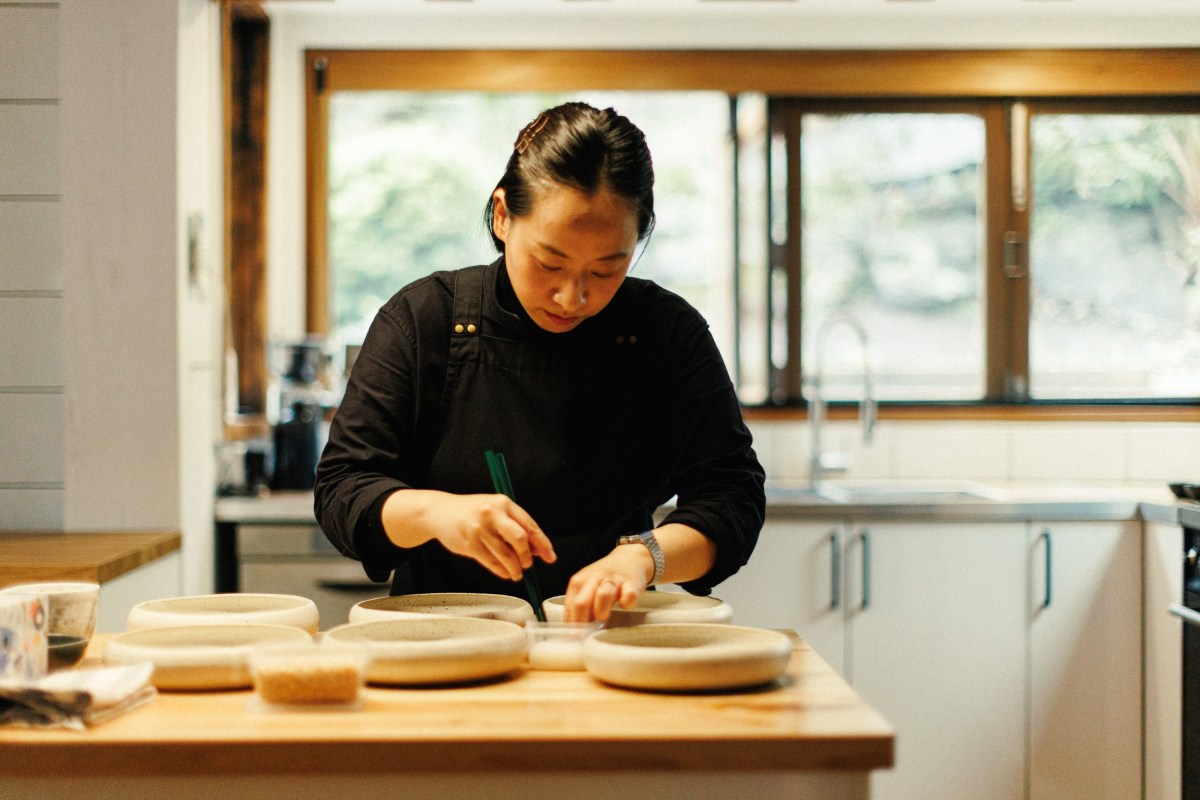Korean cuisine has been shaped by the country’s rich history, abundance of natural produce and nuanced approach to creating complex flavour profiles. Many dishes are a result of slow, considered cooking, with chefs creating foundational ingredients such as doenjang or side dishes including kimchi from scratch — proof that good things take time. Here in Australia, Korean food has long been linked to barbecue, bibimbap or fried chicken. But there’s so much more for locals to discover once they delve a little deeper.
Hospitality speaks to Yoora Yoon of Chae restaurant in Melbourne along with Jowoon
Oh and the team from the recently formed Kimchi Club about how the Korean food scene in Australia is evolving to showcase the dishes and flavours they grew up with.
Yoora Yoon and his wife Jung Eun Chae launched Chae in 2019. The restaurant was run from their apartment in Brunswick, Melbourne, before the couple relocated to the town of Cockatoo in Victoria. While there’s more room to ferment, the dining experience has remained capped at six seats.
The couple focus on giving guests an authentic Korean dining experience that provides a window into the diverse nature of Korean food. The menu changes every two months and is based on produce selected at the peak of its season. “Our cuisine sets itself apart by focusing on the relatively unknown aspects of Korean cuisine, specifically fermentation,” says Yoon. “Our menu is largely based around traditional techniques, which not only enhance the flavours and textures of ingredients, but also provide numerous health benefits.”
Chae and Yoon make their own condiments to craft their dishes from including gochujang (red pepper paste), doenjang (fermented soybean paste) and saeujeot (salted and fermented prawn or shrimp used for kimchi seasoning). The pair
make the foundational products well in advance, with some requiring one year of fermentation before they’re able to be used. Past Chae dishes reflect the same notion, with kongguksu (noodles with cold soy milk broth), galbijjim (braised short rib) and gaeseong juak (makgeolli rice donuts) all featuring on the menu.
Chae has provided the couple with an opportunity to connect with the surrounding community and share dishes many people would have likely never tried before. “Korean cuisine holds a special place in our hearts, conjuring up feelings of comfort and familiarity that remind us of our home and cultural heritage,” says Yoon.
The launch of the in-house restaurant has also coincided with a rising interest from diners who are looking to explore Korean food beyond fried chicken and bibimbap. The couple use the term ‘hallyu’, which loosely translates to the Korean wave, to refer to the way in which Korean culture (music, TV, movies and food) has become more popular across the world. “Hallyu has played a role in promoting Korean culture and cuisine,” says Yoon. “People are also becoming more curious about Korean food and are seeking out authentic restaurants and dishes. Korean restaurants and food companies are now expanding their reach and are offering more Korean-style products from traditional dishes to fusion cuisine, making the food more accessible and appealing to a wider global audience.”

Over in Sydney, chefs Jowoon Oh (Osteria di Russo & Russo) and Kevin Jeon (ex-Tokki and Samasama), have recently started Kimchi Club to help raise the profile of Korean cuisine in Australia. “After a Korean ceramics event in November last year, many people in the hospitality industry [expressed interest],” says Oh. “So, I wanted to make a networking and collaboration page to connect chefs and people who are interested in Korean food and also introduce the new faces of Korean cuisine.”
Oh says the goal of the club is to showcase unique and modern Korean ingredients and dishes as well as support chefs by giving them a platform to demonstrate their culinary skills. Kimchi Club also aspires to be a resource for chefs to use to find information about Korean ingredients and cooking methods.
But it’s not just a social initiative, Kimchi Club doubles as a pop-up with chefs coming together to run limited events. The first, held at PS40 in Sydney last month, saw Korean chefs Jinsu ‘Steven’ Park (ex-Restaurant Leo), Taesung Jang (Ragazzi) and Byeong Jae ‘Daniel’ Kang (Lankan Filling Station) at Sydney’s PS40. The team ran two events, serving up a street-style menu they described as “reinvented Korean flavour snacks”. The menu included dishes such as gimbap, kingfish with minari and myeongi alongside kimchi tofu with bread and pork belly.
“Our first pop-up was a success and many people enjoyed it even though some of the dishes we showed were not well-known,” says Kang. “Pop-ups like this are an amazing opportunity to share new foods and cuisines to the public,” adds Park. “Chefs are freer in terms of the flavours they can create through this kind of pop-up event.” Ragazzi’s Jang agrees: “Chefs who are doing the pop-ups can share their thoughts, techniques and flavours,” he says. “In a short time, people can become motivated and have an interesting experience which they have not had before.”

Oh says there are plans for more pop-ups and events from Korean barbecue to fine dining to reach a broader audience. “We would like to bring Korean food culture to different environments and settings, making it more accessible to a diverse group of people,” he says. “We will showcase the versatility of Korean cuisine by hosting events at different types of venues.”
Both Yoon and Oh agree the public’s demand for different styles of Korean venues will continue to grow. “The interest in healthy eating and fermented foods has never been higher since the pandemic, and Korean cuisine is known for being healthy and nutritious with a focus on fresh, whole ingredients and fermented foods that are high in probiotics,” says Yoon.
Wider access to Korean ingredients has also meant people can now incorporate dishes into their home cooking repertoire. “There are Korean supermarkets and grocery stores that sell ingredients and products, which makes it easier for people to cook Korean food at home,” says Oh. “I’m very surprised we can buy kimchi from Woolworths or Coles now!”
An open mind also goes a long way when it comes to expanding someone’s knowledge of a particular cuisine. “Australians are known for being adventurous when it comes to experiencing new cultures and cuisines,” says Yoon. “Korean food offers a unique and flavourful experience that is different from traditional Western cuisine.”

